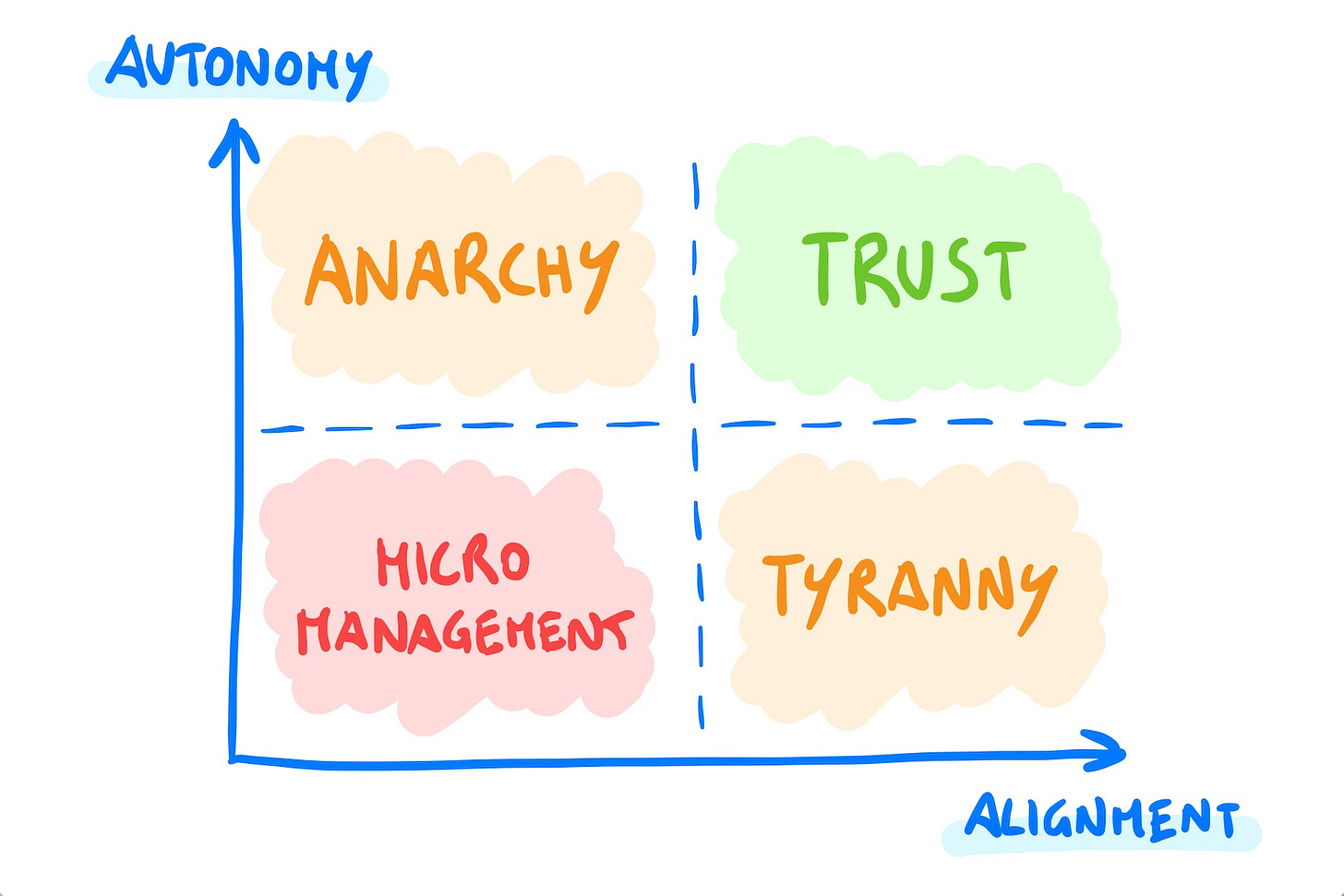Monthly Digest — October 📌
Open questions for coaching, 2 new no-code tools, and 3 new articles.
Hi there! October is almost over and it's time for our monthly digest!
For all new people who joined recently, this is a special issue I write at the end of each month. I use it to give updates about Refactoring itself, recap the latest articles, and share some great resources.
Let's start! 👇
🔨 Tools I discovered this month
It is no secret I am a big fan of no-code tools. I wrote a full article about them in June.
No-code tools are high speed and low maintenance — they reduce your time to market and your investment in expensive new code.
I keep an eye out for new tools in this space, so here are a couple of interesting ones I found this month (no affiliation):
Xano
Xano is a no-code platform focused on backend, which is pretty rare. It lets you create tables, relationships, functions, and automatically have CRUD APIs to be used by any frontend.
Here is a quick and well-made introduction video 👇
It looks pretty cool — I have a couple of ideas I will try it with.
Reform
There are plenty of tools for creating forms out there, but for some reason most of them are ugly or overly complicated.
Reform creates beautiful forms that can be embedded anywhere and can be used with Zapier and other tools.
Here is a simple feedback form I have created with it. Feel free to use it to leave feedback on Refactoring!
❓ Open questions for coaching
Quoting Robert Blakemore, coaching is:
[...] a partnership that helps the individual work out what they need to do themselves to improve and, in the process, what motivates them and what gets in their way (attitudes, prejudices, preconceptions, assumptions)
Coaching does not provide any direct solution — but rather helps the individual to find solutions themselves. To do so, the coach should ask questions in a way that is authentically curious and not judgemental.
As good as your intentions are, this is a proper skill that needs to be trained.
Here is a great list by Lara Hogan that shows how you can turn "regular", sometimes judgy questions into open, psychologically safe ones 👇
🌀 Articles
Finally, here are the three new articles I wrote this month! 👇
How to Write a Great Job Post 📋
In July this year I launched Refactoring Jobs to provide an effective way for my readers to find high quality, remote engineering jobs.
Since then I reviewed hundreds of positions and talked with tens of companies to understand what they were looking for and to help them write better posts.
I saw which performed better or worse and collected tons of feedback. I have also been hiring engineers for 10+ years myself, used to write awful job posts, and made all mistakes imaginable.
This article contains all my takeaways about what makes a job post really great. I describe what you should write, how, and why.
I also include examples from amazing companies like Stripe, GitLab, Notion, and Airbnb.
How to Estimate Software Projects 🧮
Last month I wrote an article on how to avoid negotiating on estimates. After that, many people reached out with more questions:
What’s the best way to estimate projects?
Do I think estimates are inevitably bad?
Should we estimate projects…at all?
In this article I wrote my complete thoughts on how and why to estimate software projects. I include the three most common methods:
⏱️ Effort — size is estimated in time (hours, days, ...)
🔢 Story Points — size is estimated in abstract points
🧮 Story Count — size is estimated in number of stories
I give my opinion about upsides, downsides, what you should use and when.
Engineering Principles ⭐
Autonomy is one of the key qualities you should foster in your engineering team. It drives motivation and makes the company scale.
In order to be effective, autonomy requires alignment. Together, they build trust.
Enter principles.
Principles are shared beliefs that create alignment and enable autonomy throughout the company. They provide a blueprint for how decisions should be made, by creating:
✅ A definition of what good looks like.
🗣️ A shared language to be used in daily work.
This article talks about engineering principles, exploring:
🔍 What good principles look like
🔨 How to use principles
✍️ How to define principles with your team
It also includes great examples from successful companies such as Asana, Skyscanner, and Airbnb.
⭐ Weekly Featured Jobs
Here are the remote engineering jobs I recommend this week.
I personally review all of them and have a call with each company to get more context and better understand the opportunity.
Flick — Full Stack Typescript Engineer
Flick is an analytics tool for Instagram creators. I talked with their founder Andreas about their hiring process and needs — their tech stack is cutting edge and they wrote one of the best job posts I have ever seen.
Makelog — Senior Full Stack Engineer
Makelog helps companies to keep customers engaged via product updates. It is a brilliant tool that automatically integrates with your engineering process, such as commits and pull requests. Their founder, JJ is insightful and driven by a compelling vision.
Browse many more open roles (or add your own) on the full board 👇
Hey, I am Luca 👋 thank you for reading this far!
Every week I read tens of articles and draw from my own experience to create a 10-minutes advice about some engineering leadership topic.
Subscribe below to receive a new essay every Thursday and put your own growth on autopilot!







